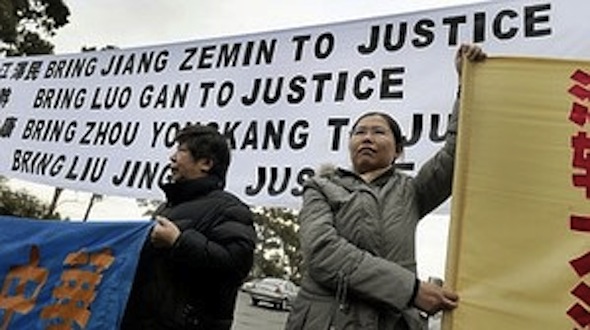Ahead of Tonight’s China Debate: Two Must-See Videos for the Candidates
Forbes
Eamonn Fingleton, Contributor
Oct. 22, 2012

Chinese leaders and their surrogates in the United States have been working hard this political season to calm American concerns about the rise of China. But predictions of China’s impending “implosion” are just that — predictions. And many of them come from people who consciously want to deflect the attention of the American electorate from the real issue: as the United States becomes increasingly dependent on Chinese finance, it is rapidly losing its economic sovereignty. Worse, it is falling under the shadow of a nation — China — whose values are about alien as those of any major modern nation. Luckily two YouTube videos have just been released that underline the extent of America’s failure to understand the real China. We can only hope Barack Obama and Mitt Romney have time to take a look ahead of their encounter tonight, in which they are expected to spend much time discussing China.
The first clip is entitled, “Killed For Organs: China’s Secret State Transplant Business,” and it gives a horrific account of the Chinese state’s forced “harvesting” of human kidneys, livers, and other vital organs. In most cases, the “donors” are prisoners and many of them — perhaps a majority — are prisoners of conscience. Their organs are sold to a booming domestic and global organ transplant industry, with hearts, for instance, fetching well over $100,000 each. There have been allegations that supporters of the Falungong spiritual movement have been particularly targeted. In many cases organs fitting a recipient’s physiology can be made available within a week and the removal of the “donor’s” organs constitutes his or her execution. The clip includes a particularly graphic comment from the Canadian political campaigner David Kilgour: “It makes you think of some grotesque restaurant where you pick your lobster — except that these are human beings we are talking about.” If this clip does not focus American attention on the ethical implications of China’s rise, nothing will.
The second clip is a commentary by the prominent management writer Richard D’Aveni describing the extent of China’s challenge to the American economy. His contribution is, I believe, of historic significance in that he is the first top American scholar to speak so clearly about the crisis now facing American capitalism. (D’Aveni’s comments are a complete break from a pattern of self-censorship which has long restrained the East Asian studies field in American universities. The problem has been scholars’ increasing dependence on funding from politically motivated donors — not least many American corporations that profit from shipping jobs to China). D’Aveni comes to the subject as an established and highly respected expert on management and his authority is bolstered by the fact that he enjoys tenure at Tuck, one of America’s top management schools.
